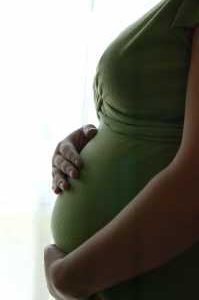
03 Feb Significant Number of Postpartum Women Have Severe Complications After Hospital Discharge
MedicalResearch.com Interview with:
Jiajia Chen, PhD
Division of Reproductive Health
National Center for Chronic Disease Prevention and Health Promotion
Centers for Disease Control and Prevention,
Atlanta, Georgia
MedicalResearch.com: What is the background for this study?
Response: Severe maternal morbidity (SMM) includes a range of serious pregnancy complications that result in significant short-term or long-term consequences to a woman’s health. Most research and prevention efforts addressing SMM focus on the delivery hospitalization, but less is known about SMM diagnosed after delivery discharge.
MedicalResearch.com: What are the main findings? What should readers take away from your report?
Response: The study examined severe maternal morbidity (SMM) that first occurred after delivery discharge among women who did not exhibit any SMM conditions during their delivery hospitalization. Findings reveal that a significant number of women have severe complications that start after they leave the hospital. Specifically, one in seven SMM cases among commercially-insured women, and almost one in six SMM cases among Medicaid-insured women first developed after delivery discharge. Of SMM cases that were identified within the first six weeks (42 days) after delivery discharge, about three-quarters were identified in the first two weeks. The most common SMM conditions after delivery were different from those identified at delivery. Racial disparities in SMM after delivery discharge persist. Among deliveries insured by Medicaid, the odds of severe maternal morbidity among Black women are about 1.7 times more likely than White women.
MedicalResearch.com: What recommendations do you have for future research as a result of this work?
Response: These findings highlight the importance of examining severe maternal morbidity that first emerges in the immediate postpartum period. Expanding the focus of SMM to those diagnosed after delivery discharge and continued monitoring of SMM may improve our understanding of the burden and impact of SMM and create new opportunities to improve maternity and postpartum care.
Citation:
Chen J, Cox S, Kuklina EV, Ferre C, Barfield W, Li R. Assessment of Incidence and Factors Associated With Severe Maternal Morbidity After Delivery Discharge Among Women in the US. JAMA Netw Open. 2021;4(2):e2036148. doi:10.1001/jamanetworkopen.2020.36148
JOIN OUR EMAIL LIST
[mailpoet_form id="5"]We respect your privacy and will never share your details.
[last-modified]
The information on MedicalResearch.com is provided for educational purposes only, and is in no way intended to diagnose, cure, or treat any medical or other condition. Always seek the advice of your physician or other qualified health and ask your doctor any questions you may have regarding a medical condition. In addition to all other limitations and disclaimers in this agreement, service provider and its third party providers disclaim any liability or loss in connection with the content provided on this website.
Last Updated on February 4, 2021 by Marie Benz MD FAAD
